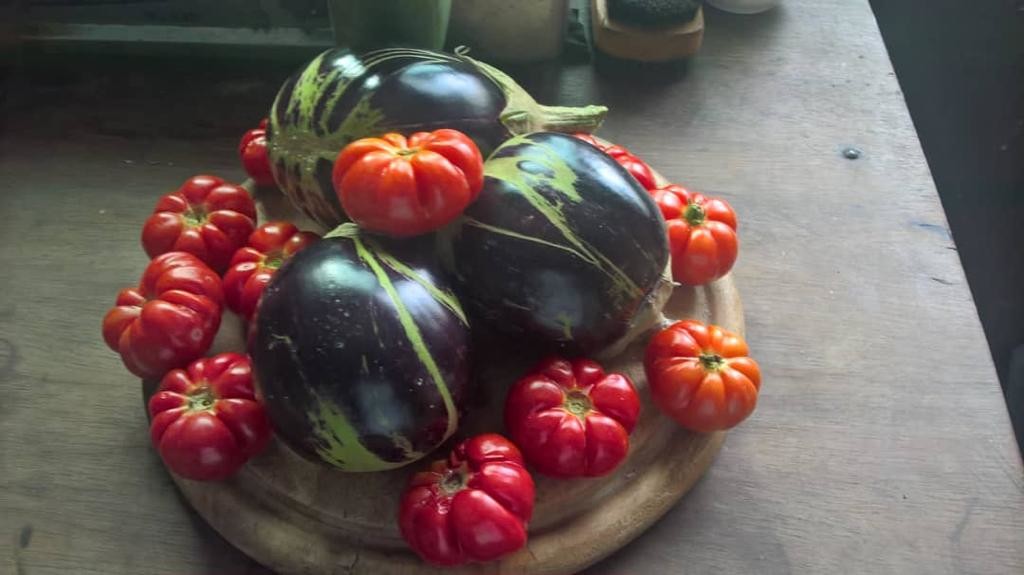In recent years, the importance of sustainable farming practices has gained significant attention worldwide.
Thank you for reading this post, don't forget to subscribe!With the increasing demand for tomatoes both locally and internationally, it has become crucial for Ghanaian farmers to find ways to maximize yields while minimizing their environmental impact. From organic fertilizers to precision irrigation systems, we will delve into the various methods that can help farmers optimize their yields while reducing water usage, minimizing chemical inputs, and promoting soil health. By embracing sustainable practices, Ghanaian tomato farmers can not only ensure their long-term profitability but also contribute to the preservation of the country’s natural resources and the overall well-being of the environment.
Importance of Sustainable Farming Practices
Sustainable farming practices are essential for the long-term viability of the agricultural sector. Conventional farming methods often rely heavily on synthetic pesticides and chemical fertilizers, which can have detrimental effects on the environment, soil health, and human health. By transitioning to sustainable practices, farmers can reduce their reliance on harmful chemicals and promote a more balanced ecosystem. Sustainable farming methods prioritize soil conservation, water efficiency, and biodiversity, ensuring that the land can continue to produce healthy crops for generations to come.
One of the primary benefits of sustainable farming is its positive impact on soil health. Conventional farming practices degrade soil quality over time, leading to decreased fertility and increased erosion. Sustainable farmers employ techniques such as cover cropping, crop rotation, and organic matter incorporation to improve soil structure, increase nutrient availability, and reduce erosion. By maintaining healthy soil, farmers can provide a conducive environment for tomato plants to grow and thrive, resulting in higher yields and healthier produce.
Water conservation is another crucial aspect of sustainable farming. In many regions of Ghana, water scarcity is a significant concern, and inefficient irrigation practices can exacerbate this issue. Sustainable tomato farmers employ precision irrigation systems and techniques such as drip irrigation and mulching to minimize water usage and improve water efficiency. These water-saving practices not only benefit the environment but also help farmers reduce their production costs.
Implementing Sustainable Farming Techniques
Soil Management for Sustainable Tomato Farming
Effective soil management practices play a vital role in sustainable tomato farming. One of the key strategies is the use of organic fertilizers, such as compost and manure, which provide essential nutrients to the soil without causing harm to the environment. Organic fertilizers improve soil fertility, enhance microbial activity, and promote overall soil health. Additionally, sustainable farmers prioritize soil testing to determine nutrient deficiencies and adjust their fertilizer applications accordingly, ensuring optimal nutrient uptake by the tomato plants.
Cover cropping and crop rotation are also important soil management techniques.
Water Conservation in Tomato Farming
Water scarcity is a significant concern in many tomato farming regions, making water conservation practices essential. Sustainable tomato farmers implement precision irrigation methods, such as drip irrigation and micro-sprinklers, to minimize water wastage. These systems deliver water directly to the root zone of the plants, reducing evaporation and ensuring efficient water uptake. Mulching is another effective technique for water conservation. These water-saving practices not only conserve a precious resource but also lead to healthier tomato plants and higher yields.
Pest and Disease Management in Sustainable Tomato Farming
Pest and disease management is a critical aspect of sustainable tomato farming. Conventional farming often relies on chemical pesticides to control pests and diseases, but these can have harmful effects on the environment and human health. Sustainable farmers employ integrated pest management (IPM) techniques, which combine various strategies to minimize pesticide use while effectively managing pests and diseases.
One of the key components of IPM is the use of beneficial insects and biological control agents to control pest populations naturally. Ladybugs, lacewings, and parasitic wasps are examples of beneficial insects that feed on pests like aphids and caterpillars. Additionally, sustainable farmers use crop rotation, trap crops, and physical barriers to reduce pest infestations. Regular scouting and monitoring of the tomato plants also allow farmers to detect early signs of pest and disease outbreaks, enabling timely intervention and minimizing the need for chemical sprays.
Crop Rotation and Diversification for Sustainable Tomato Farming
Crop rotation and diversification are essential practices for sustainable tomato farming. By rotating tomato crops with other plants, farmers disrupt the life cycles of pests and diseases, reducing their buildup in the soil. Different crops have different nutrient requirements, so rotation also helps prevent nutrient depletion and promotes overall soil health. Additionally, the inclusion of cover crops in the rotation cycle helps improve soil structure, suppress weeds, and increase organic matter content.
Diversification involves growing a variety of crops alongside tomatoes. This not only helps spread the risk of crop failure but also promotes biodiversity and beneficial insect populations. Diversification also offers economic benefits, as farmers can tap into multiple markets and reduce their dependence on a single crop.
Maximizing Tomato Yields in a Sustainable Way
Maximizing tomato yields while maintaining sustainable practices is a top priority for Ghanaian tomato farmers. Firstly, selecting the right tomato varieties is crucial. This ensures that the plants can withstand environmental stresses and produce optimal yields.
Proper plant nutrition is another key factor in maximizing tomato yields. Sustainable farmers conduct regular soil tests to determine nutrient deficiencies and adjust their fertilizer applications accordingly. By providing the correct balance of nutrients, farmers can promote healthy plant growth, minimize nutrient deficiencies, and maximize tomato yields.
Timely and appropriate irrigation is essential for optimal tomato growth and yield. Sustainable farmers employ precision irrigation techniques to deliver water directly to the root zone of the plants. This ensures that the plants receive adequate moisture without wasting water through evaporation or runoff.
Effective weed management is also crucial for maximizing tomato yields. Weeds compete with tomato plants for nutrients, water, and sunlight, leading to reduced plant vigor and lower yields. Sustainable farmers use a combination of cultural, mechanical, and biological weed control methods to minimize weed pressure. These methods include mulching, hand weeding, hoeing, and the use of cover crops.
Marketing Sustainable Tomatoes
Marketing sustainable tomatoes requires a strategic approach to reach the target market and communicate the unique benefits of sustainably grown produce. One effective strategy is to participate in local farmers’ markets and establish direct relationships with consumers. This allows farmers to engage with customers, educate them about the sustainable practices employed, and build trust and loyalty. Additionally, farmers can collaborate with restaurants, grocery stores, and food cooperatives that prioritize sustainable sourcing. By partnering with businesses that share the same values, farmers can access a wider customer base and create a market for their sustainable tomatoes.
Digital marketing also plays a crucial role in promoting sustainable tomatoes. Farmers can leverage social media platforms to showcase their sustainable farming practices, share educational content, and interact with consumers. Email newsletters and collaborations with food bloggers or influencers can also help raise awareness and generate interest in sustainable tomatoes.
Future of Sustainable Tomato Farming in Ghana
While sustainable tomato farming offers numerous benefits, it also comes with its fair share of challenges. Farmers may need to invest in infrastructure, equipment, and training to implement sustainable techniques effectively. Access to affordable organic fertilizers and pest control methods can also be a challenge, as the availability and cost of these inputs may vary.
Another challenge is the need for continuous education and support for farmers. Sustainable farming practices require knowledge and skills that may be new to many farmers. Providing training programs, workshops, and mentorship opportunities can help farmers acquire the necessary expertise and overcome barriers to adopting sustainable practices. Government agencies, non-profit organizations, and agricultural extension services can play a crucial role in providing support and resources to farmers interested in transitioning to sustainable tomato farming.
Looking ahead, the future of sustainable tomato farming in Ghana is promising. This presents an opportunity for Ghanaian tomato farmers to differentiate themselves in the market and command a premium for their sustainably produced tomatoes. Additionally, advancements in agricultural technology and research will continue to drive innovation in sustainable farming practices, making them more accessible and cost-effective for farmers.
In conclusion, sustainable tomato farming in Ghana offers a path toward maximizing yields while minimizing environmental impact. By implementing strategies such as organic fertilizers, precision irrigation, crop rotation, and pest management techniques, farmers can optimize their yields, conserve water, promote soil health, and reduce reliance on synthetic inputs. Marketing sustainable tomatoes requires a targeted approach that highlights the unique benefits of sustainably grown produce and engages consumers through direct channels and digital platforms. While challenges exist, the future of sustainable tomato farming in Ghana looks promising, driven by increasing consumer demand and ongoing support for farmers’ education and innovation. By embracing sustainable practices, Ghanaian tomato farmers can ensure their long-term profitability while contributing to the preservation of the country’s natural resources and the overall well-being of the environment.

